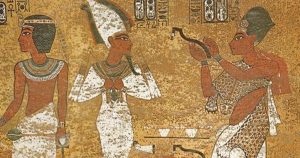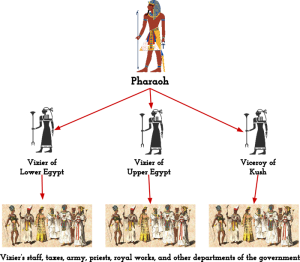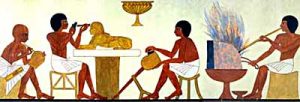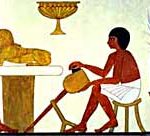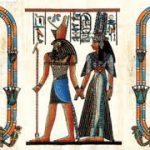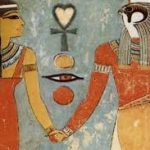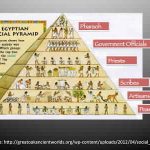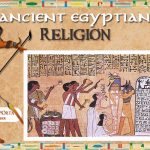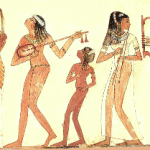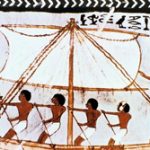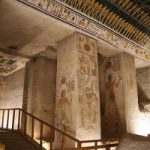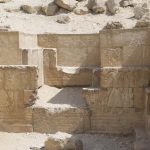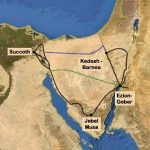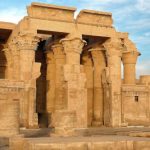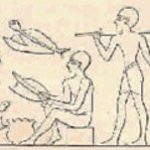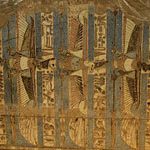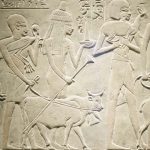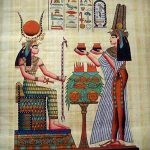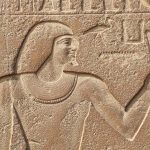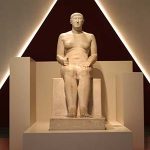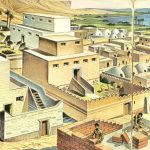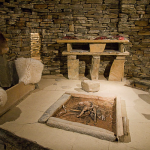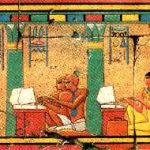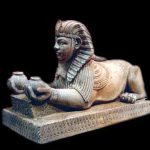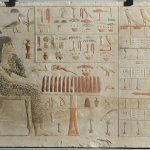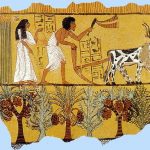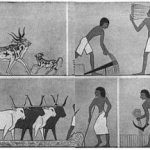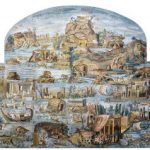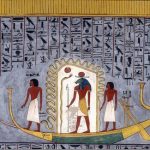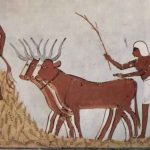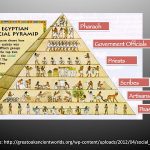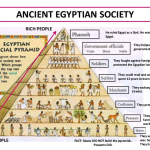Ancient Egypt enjoyed well-trodden trade links with surrounding cultures in Mesopotamia, Africa and the Mediterranean. Consequently, trade and its merchants was a significant employer in ancient Egypt. Some traders ventured on caravan expeditions to buy and sell fine wares. Other merchants acted as distributors and retailers for imported goods, establishing shops to sell their goods. Merchants usually accepted payment in coin but also bartered for goods such as jewellery, precious metals, gemstones, beer and foodstuffs.
Skilled Craftspeople
It was ancient Egypt’s legions of skilled craftsmen who created the beautiful paintings, inscriptions, ornate gold jewellery and sculptures that Egypt is renowned for today.

An artist or craftsman who created finely wrought works for Egypt’s nobility enjoyed a comfortable standard of living as did potters and weavers who wove clothing or produced cooking pots and jugs. Most of ancient Egypt’s craftsmen lived in the cities and sold their wares either in family-owned shops or at market stalls.
Dancers And Musicians
Both men and women could earn a living as musicians and dancers. Singers, musicians and female dancers were constantly in high demand. They performed at the numerous religious festivals at temple rituals and ceremonies. Women were often accepted as singers, dancers and musicians, commanding high fees for their performances.

Upper-Class Jobs
Egypt’s nobility often enjoyed sufficient wealth from their landholdings that they could prosper on the profits from land worked by tenant farmers. However, many upper-class occupations provided prestigious and well-paying roles, within the Egyptian economy.

Government
Administering an empire over 3,000 years required a sprawling bureaucracy. Egypt’s legion of government administrators oversaw harvests and tax collection, managed construction projects and kept extensive records and inventories. At the top of Egypt’s government was a vizier. This role was that of the Pharaoh’s right hand. Viziers oversaw every aspect of the government and reported directly to the pharaoh. At a provincial level was a governor who managed the province in the name of the pharaoh and reported to the vizier. Each administration employed enormous armies of scribes to keep records of policy decisions, law and taxes.

Priests
The many cults in ancient Egypt established almost a parallel state. A priestly occupation offered access to the wealthiest avenue of Egypt’s upper class. The cults and its priests were allocated part of the spoils from every military campaign as well as receiving part of all sacrifices. This often opened up a comfortable life of luxury for priests, particularly its high priests. However, worship of some deities ebbed and flowed and the status of the god’s priests tracked that of their god. If the god you served lost popularity, the temple could languish with its priests consigned to poverty.

Scribes
Scribes were the engine room of the government and provided a vital and much sought after service for merchants and working people. Ancient Egypt’s complex written language of hieroglyphs required extensive education to master. Entry to scribe school was open to anyone who could afford the fee. After passing a series of demanding exams, scribes had the option of writing the elaborate coffin texts for tombs, writing letters for nobles, merchants or commoners or working for the government.

